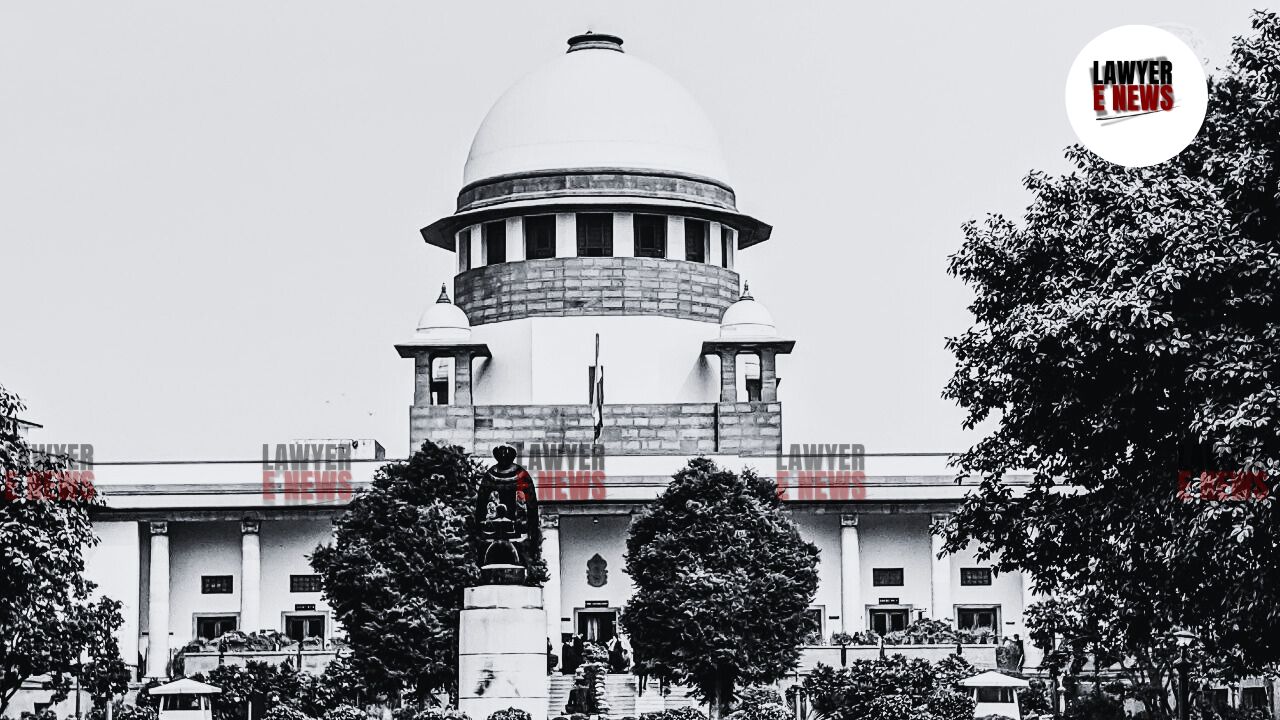-
by Admin
16 February 2026 1:47 PM



Once Property Contributed to a Partnership Becomes Firm’s Asset - In a significant ruling Supreme Court dismissed the appeal filed by Sachin Jaiswal, upholding the Allahabad High Court’s decision that a property contributed to a partnership firm became its exclusive asset, with no individual rights retained by the contributing partner or their legal heirs. The Court ruled that "once a partner introduces property into the partnership, it ceases to be their individual asset and becomes the property of the firm."
The case, Sachin Jaiswal v. M/s Hotel Alka Raje & Others, stemmed from a long-standing dispute over a 4 bigha 10 biswa plot in Faizabad, originally purchased in 1965 by Bhairo Prasad Jaiswal, father of the appellant. The Supreme Court found that Bhairo Prasad had effectively made the land a partnership asset, and his legal heirs could not claim independent ownership over it.
"Property Brought Into Partnership Becomes Firm’s Perpetual Asset" – Supreme Court Cites Section 14 of Partnership Act
The dispute centered on whether the land purchased by Bhairo Prasad Jaiswal remained his personal property or had become an asset of the partnership firm, M/s Hotel Alka Raje.
The appellant argued that ownership of the land was never formally transferred to the firm and remained an ancestral property. He contended that the relinquishment deed executed by Bhairo Prasad in 1983 was legally ineffective, as transfer of title over immovable property could only occur through sale, mortgage, exchange, or gift under the Transfer of Property Act.
Rejecting this argument, the Supreme Court ruled that "once a partner brings property into the stock of a partnership, it becomes the firm’s property under Section 14 of the Indian Partnership Act, 1932." The Court held that: "The moment a partner contributes an asset to the firm, it ceases to be his personal property and becomes a part of the partnership estate. The successor or legal heir of such a partner has no right, title, or interest over the firm’s property unless expressly provided for in the partnership deed."
The Court referred to Addanki Narayanappa v. Bhaskara Krishnappa (1966 SCC OnLine SC 6) and Chief Controlling Revenue Authority v. Chidambaram (1970 AIR Mad 5 FB), reaffirming that: "A partner’s separate property can become partnership property by mere intention and conduct, without the need for a separate sale deed or transfer agreement."
"Relinquishment Deed Was Valid, Heirs Cannot Claim Rights Over Partnership Assets"
The Supreme Court upheld the validity of the 1983 relinquishment deed, which was duly registered and clearly stated that: "Bhairo Prasad Jaiswal had relinquished all his rights in the land in favor of the partnership firm, and neither he nor his legal heirs would have any claim over the property in the future."
The Court observed that: "A relinquishment deed that is registered and executed in clear terms is binding. The appellant’s argument that property transfer must only occur through sale or mortgage does not apply in partnership cases, where contributions to the firm are governed by partnership law rather than the Transfer of Property Act."
The High Court had earlier ruled that: "Hotel Alka Raje, as a partnership firm, was the sole owner in possession of the property, and the heirs of Bhairo Prasad had no legal claim over it." The Supreme Court agreed with this finding and found no reason to interfere.
"Firm’s Ownership of Property Was Established by Conduct and Business Transactions"
Examining the conduct of the parties, the Supreme Court noted that even after relinquishing his rights, Bhairo Prasad continued as a partner in the firm and drew profits from the business. This demonstrated that: "The property was intended to be used as a firm asset, and its contribution was part of the business arrangement among partners."
The Court rejected the appellant’s claim that he should have been made a partner in the firm simply because his father once owned the land. The Court ruled that: "Legal heirs do not inherit an automatic right to partnership property unless they are admitted as partners under the firm’s governing documents. A property, once made a firm asset, cannot be individually claimed by a partner’s descendants."
Dismissing the appeal, the Supreme Court ruled: "The High Court rightly held that the suit property belongs exclusively to M/s Hotel Alka Raje. The firm alone has ownership rights, and the appellant or other legal heirs of Bhairo Prasad Jaiswal have no claim over it. The appeal is accordingly dismissed."
The Supreme Court’s ruling reaffirms that "property contributed to a partnership firm becomes its exclusive asset and cannot be reclaimed by individual partners or their heirs."
By upholding the validity of the relinquishment deed and the principles of partnership law, the judgment ensures that "firm assets remain protected from personal inheritance claims, reinforcing the stability and continuity of business entities."
Date of decision: 27/02/2025
